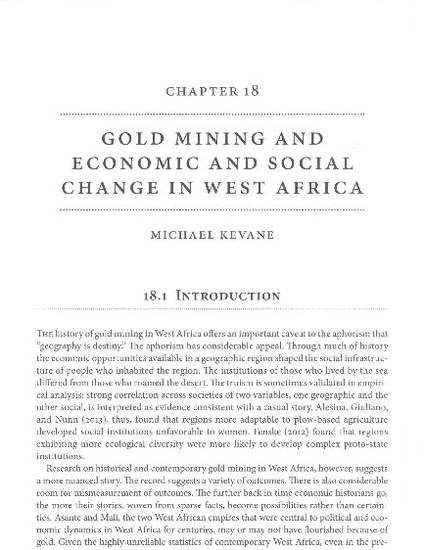
Economic theory often suggests that social institutions are strongly influenced by specific geographic features of regions. The history of gold mining in West Africa, however, suggests that the relationship between mineral resources and social organization is complex and fluid. First, over the centuries gold mining revenues may have encouraged state formation, but at the same time opportunities for conflict and corruption may have undermined state functioning. Second, while gold extraction and trade required social organization, the interpersonal relationships engendered by gold mining also led to new identities and social institutions. These dialectical considerations illustrate how simple theories of how geography affects society need to be tempered by more nuanced understanding of history.
Justin Yifu Lin
https://doi.org/10.1093/oxfordhb/9780199687107.013.020

This material was originally published in The Oxford Handbook of Africa and Economics: Volume 2: Policies and Practices edited by Célestin Monga & Justin Yifu Lin, and has been reproduced by permission of Oxford University Press. For permission to reuse this material, please visit http://www.oup.co.uk/academic/rights/permissions.